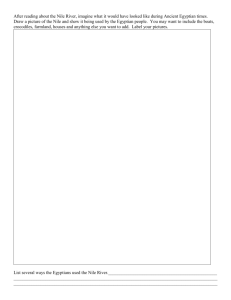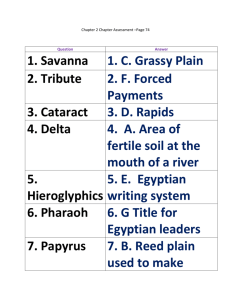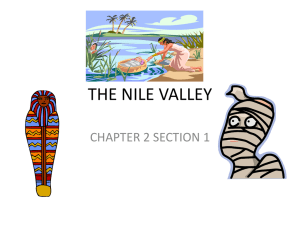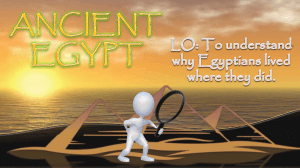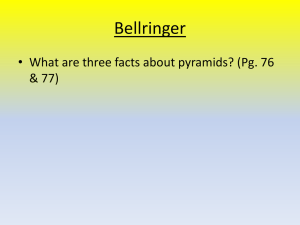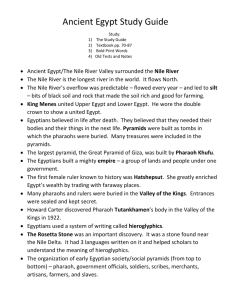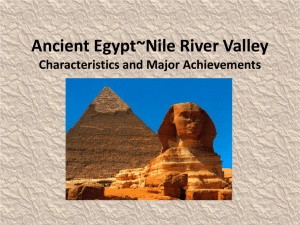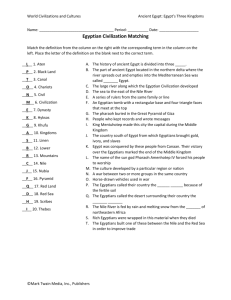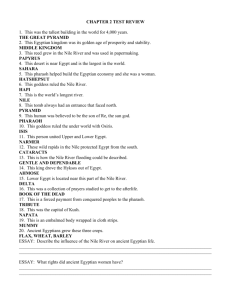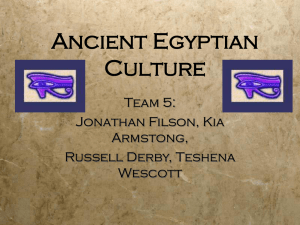How did trade develop in various places along the Nile?
advertisement
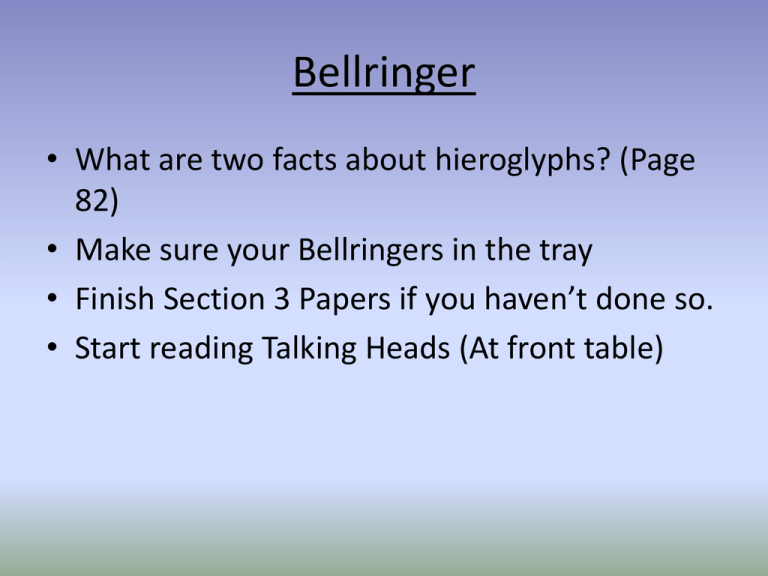
Bellringer • What are two facts about hieroglyphs? (Page 82) • Make sure your Bellringers in the tray • Finish Section 3 Papers if you haven’t done so. • Start reading Talking Heads (At front table) Section 1 Review 1. How did the Nile River affect the lives of the early Egyptians and Nubians? Annual flooding provided fertile land to farm 2. How did trade develop in various places along the Nile? Nile was natural highway for Egyptian boats to go to other countries for trading Section 2 Review 1. How did Egypt’s rulers govern their empire? Pharaohs had total power over the government, economy, and military of Egypt 2. Describe some of the accomplishments of the Old Kingdoms. Time of peace and prosperity. Near end, governors challenged pharaohs and kingdom grew weak 3. Describe some of the accomplishment of the Middle Kingdom. Restored order, united the country, and completed irrigation projects 4. Describe some of the accomplishments of the New Kingdom. Drove foreigners out of the country, created huge armies, and began building an empire Section 3 Review Questions 1. What is the site of Giza? Site of the Great Pyramid 2. How did the religion of the ancient Egyptians explain what happened to a person after death? The Egyptian religion claimed that the dead would live on forever in a world of ease and pleasure. 3. How was a pharaoh’s tomb furnished? Tombs were furnished with belongings and personal items such as sandals and even horses Section 4- The Culture of the Ancient Egyptians Notes 1. Pharaoh: absolute ruler 2. Upper Classes: nobles, priests, members of pharaoh’s court 3. Middle Classes: skilled workers, merchants 4. Peasants: workers who farmed the land; built roads and temples Section 4 Review Questions 1. Who was Jean Francois Champollion? French scholar who translated the Egyptian hieroglyphics on the Rosetta Stone 2. How were the lives of Egypt’s peasants ruled by the seasons? Peasants could not plant crops until after the annual summer flooding of the Nile; had to work harvest season 3. What contributions did the Egyptians make in medicine and astronomy? Egyptian astronomers predicted annual flooding of the Nile; Knew how to set broken bones and perform surgery; Made medicines from plants Cartouche • On your blank sheet of computer paper, you are going to write your first and last name using a personal cartouche • A cartouche is an oblong frame containing a name • You may have to skip certain letter in your name that are not represented on the hieroglyphs chart on page 82 • Make sure you put your actual name, date, and period on the page also
